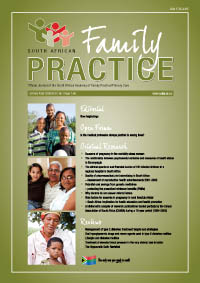The Relationship between Psychosocial Variables and Measures of Health Status in Fibromyalgia
Keywords:
relationship, psychosocial variables, health status, patients with fibromyalgia
Abstract
Background: Fibromyalgia is considered to be a multifactorial condition in which a number of biological and psychological variables interact. However, the exact pathogenesis and effective treatment of fibromyalgia is still unknown. In this study the relationship between psychosocial variables of self-efficacy, helplessness, perceived social support, and pain-related beliefs and several measures of health status of patients with fibromyalgia were examined. Methods: Thirty-one patients diagnosed with fibromyalgia participated in the study. Patients diagnosed with other concommitant rheumatologic conditions were excluded from the study. Each patient was individually assessed by the same physician in terms of functional status and pain experience and then measured on psychosocial variables in a cross-sectional study. Correlations between these psychosocial and health status variables were calculated. Results: Significant correlations were found between the psychosocial variables and health status. Consistent with previous research, self-efficacy was found to be the most important psychosocial variable in the present study, correlating with several measures of health status. Quality of social support and cognitive beliefs hardly showed any relationship with health status. Conclusions: It is recommended that self-efficacy enhancement programmes be included in the treatment of patients with fibromyalgia. However, further research is still needed to investigate the effect of self-efficacy enhancement on the overall quality of life of these patients.
Published
2008-12-12
Section
Original Research
By submitting manuscripts to SAFP, authors of original articles are assigning copyright to the South African Academy of Family Physicians. Copyright of review articles are assigned to the Publisher, Medpharm Publications (Pty) Ltd, unless otherwise specified. Authors may use their own work after publication without written permission, provided they acknowledge the original source. Individuals and academic institutions may freely copy and distribute articles published in SAFP for educational and research purposes without obtaining permission.

